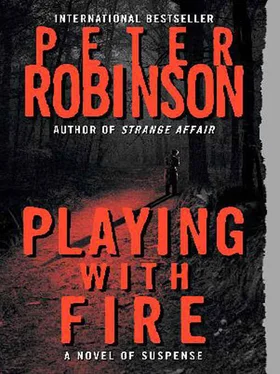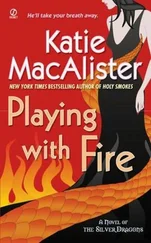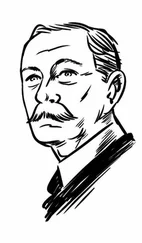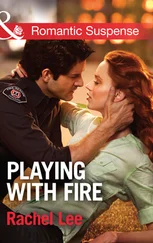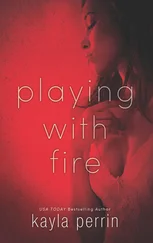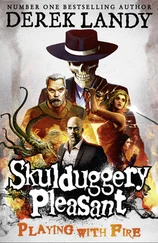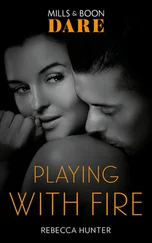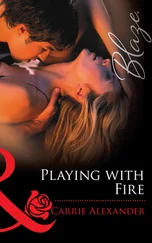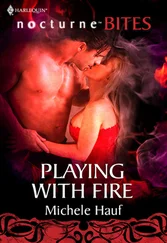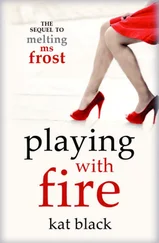Banks gave her his car coat, which she put on a hanger in the hall cupboard. The house smelled of apples and cinnamon. Mrs. Redfern led him into the kitchen, where the smell was even stronger. “I hope you don’t mind if we talk in here,” she said. “The study and the sitting room are just too formal. I always think the kitchen is the real heart of a house, don’t you?”
Banks agreed. Though he spent most of his time in his living room reading, watching television or listening to music, he loved his own kitchen. In fact, the kitchen was the main reason he had bought the cottage in the first place, having dreamed about it before he saw it. The Redferns’ kitchen was much larger than his, though, done out in rustic style, with a heavy wood dining table and four hard-backed chairs. French doors, closed at the moment, led out to a small conservatory. Banks sat down.
“Besides,” Mrs. Redfern went on, “the pie should be ready. I’ll just take it out and let it cool a minute.”
“I thought I could smell something good,” said Banks.
“I always like to do something a bit special when we have company,” Mrs. Redfern said, taking the apple pie out of the oven and setting it on a rack. The crust was golden and flaky. There was something surreal about the whole scene, Banks was beginning to feel: rustic kitchens, cooking smells, apple pie fresh from the oven. It was a far cry from Mark’s and Tina’s world. He wondered if Mrs. Redfern felt that she needed some sort of activity to take her mind off his impending visit, or to calm her nerves.
Dr. Redfern strode in. He looked fit and energetic despite being in his seventies, and he still had a full head of silver hair. His handshake was firm. Banks wondered if he had been a good doctor. “Maurice Redfern,” he said. “Pleased to meet you.” Then he sat opposite Banks.
“First of all,” Banks said, “I just want you to know that I’m very sorry about what happened to your granddaughter, and that we’re doing our best to find out who did it.”
“I don’t see how we can help you,” said Dr. Redfern, “but we’ll do as much as we can, of course.”
His wife fussed over tea, then set the pot and three cups and saucers down on the table and cut them each a slice of apple pie. “Some cream with your pie?” she asked Banks. “Or a slice of Cheddar, perhaps?”
“No, thanks. It looks fine as it is.”
“Milk and sugar?” she asked, tapping the teapot.
“Just as it comes, please,” said Banks. She poured and sat down. She seemed on edge, Banks thought, unable to keep still. Perhaps it was just her nature. Banks sipped some tea. It was strong, the way he liked it. Sandra always used to say he could stand a spoon up in his tea. She preferred hers weak, with milk and two sugars. In his mind’s eye, he saw her walking away from him in the rain, pushing the pram. “I’m just after some background, really,” he said. “You’d be surprised how helpful little things can be, and you don’t know what they are until you find them. Rather like a doctor’s diagnosis, I suppose?”
“Indeed,” said Maurice Redfern. “Very well. Go ahead, then.”
“Were you close to your granddaughter?” Banks asked.
The Redferns exchanged glances. Finally, Maurice answered. “Christine lived here with us until she was five years old,” he said slowly. “After that, she was a frequent visitor, and sometimes she even stayed with us for longer periods. We’d look after her if her parents took a short holiday, that sort of thing.”
It was a very evasive answer, Banks thought. But maybe his question was too difficult, or too painful, for the Redferns to answer. “Did she confide in you about things?”
“She was a quiet child. A dreamer. I don’t know that she ever confided in anyone.”
“What about when she got older? Did you remain close?”
“Do you have any children of your own, Mr. Banks?” Julia Redfern asked.
“Two,” Banks said. “A boy and a girl.”
“Grandchildren?”
“Not yet.”
“Of course not,” she said. “You’re far too young. But you’ll know what I mean when I tell you how relationships change when children become teenagers.”
“You didn’t see as much of her?”
“Exactly. The last thing a teenage girl wants to do is come and visit old grandma and grandad.”
“Boys, too,” said Banks. “I was the same, myself.” Banks’s grandparents had all lived in London, so he hadn’t seen them that often, but he remembered endless rainy train rides with his parents and his brother Roy, remembered the old Hornby clockwork train set his grandad Banks kept for him to play with in the spare room, the old war souvenirs in the attic – a tin hat, a shell casing and a gas mask – and the rabbit hutches in the big back garden of his grandad Peyton’s house, facing the railway tracks, the long trains rumbling by in the night, through his sleep. All four grandparents were dead by the time he was seventeen, and he was sorry he hadn’t had a chance to know them better. Both his grandfathers had fought in the First World War, and he wished he’d asked them about their experiences. But back when he was a kid, he hadn’t cared so much. Now the subject interested him. He hoped that if Brian or Tracy had kids it wouldn’t be so far in the future that he was a useless old man. “But you did see her on occasion, didn’t you?” he asked.
“Oh, yes,” Maurice Redfern answered. “But she was un-communicative.”
“Did you ever suspect there was anything wrong?”
The muscles on Maurice’s face seemed to tighten. “Wrong? In what way?”
“Did you suspect drug use, for example? It’s not uncommon among teenagers.”
“I never saw any evidence of it.”
“Was she happy?”
“What an odd question,” Maurice said. “I suppose so. I mean she never said, either way. She was very much in her own world. I assumed it was a benign place. Now it appears that perhaps I was wrong.”
“Oh? Why is that?”
“You’d hardly be here asking all these questions otherwise, would you?”
“Dr. Redfern, I’m sorry if I appear to be prying into private family history, but this is a murder investigation. If you know anything at all about your granddaughter’s state of mind prior to her death, then you should realize it might be important information.”
“We don’t know anything,” said Julia. “We were just a normal family.”
“Let’s go back a bit,” said Banks. “How old was Christine’s mother when she got pregnant?”
“Sixteen,” said Maurice.
“Was she a wild child?”
He thought for a moment, fingertip touching his lips, then said, “No, I wouldn’t say that, would you, dear?”
“Not at all,” Julia agreed. “Just foolish. And ignorant. It only takes once, you know.”
“And the father was an American student?”
“Apparently so,” said Dr. Redfern. “He soon disappeared from the scene, whoever he was.”
“What kind of a mother was Frances?”
“She did her best,” said Julia. “It was difficult, her being so young and all, but she tried. She did love little Christine.”
“Was Dr. Aspern on the scene then?”
“I’ve known Patrick Aspern for nearly thirty years,” said Dr. Redfern. “He was my junior at the infirmary, and we even practiced together in Alwoodley for a period.”
“So you were his mentor?”
“In a way. His friend, too, I hope.”
“How did you feel about Dr. Aspern’s interest in your daughter?”
“We were pleased for both of them.”
“How early did you notice it?”
“What do you mean?”
“I assume Patrick Aspern was around the house a lot. Did he seem interested in Frances before she had Christine?”
Читать дальше
